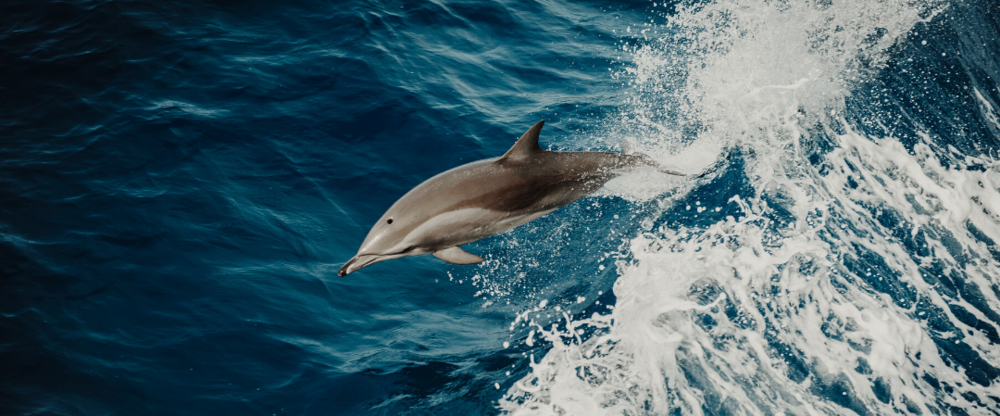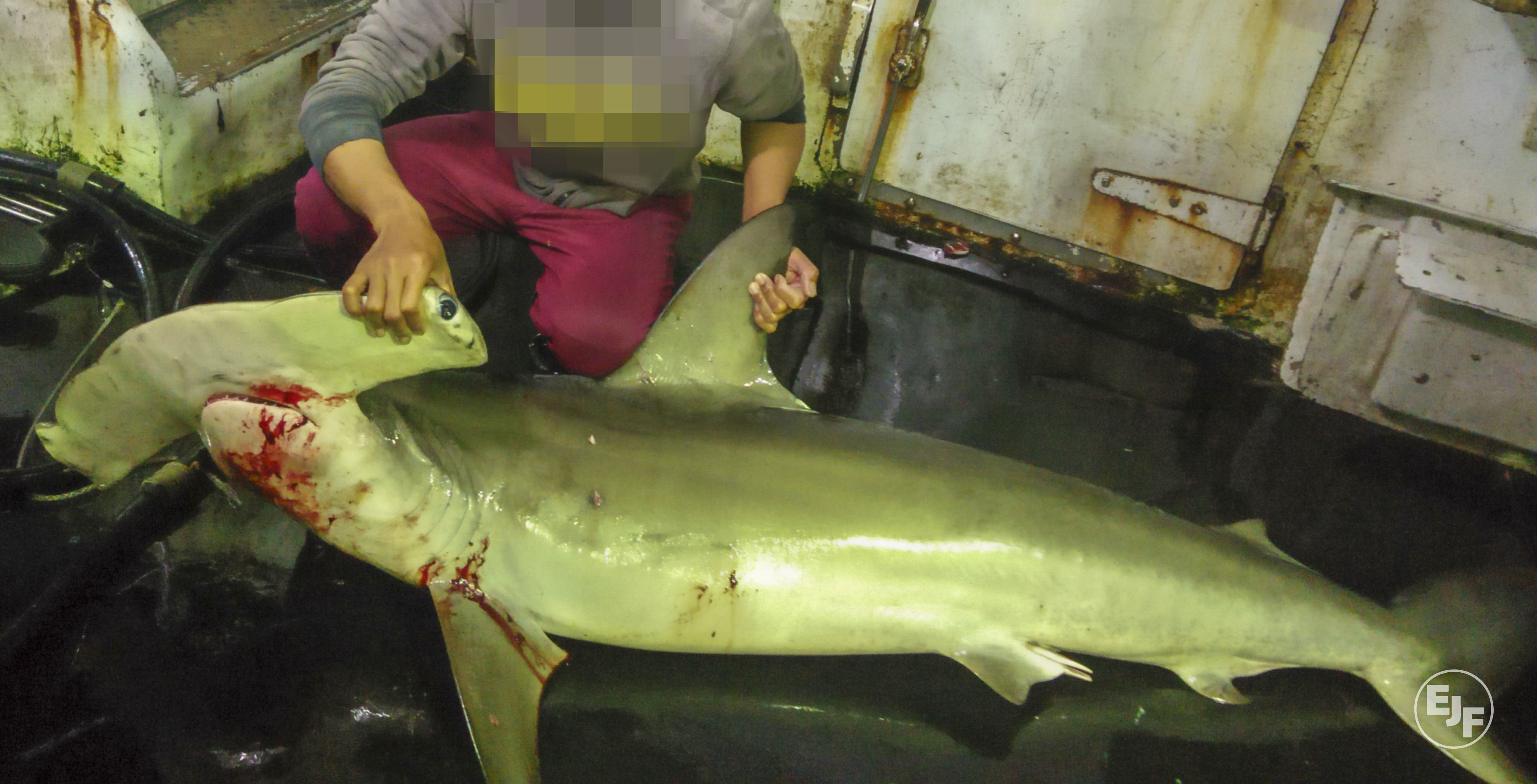
A deadly dance in the waves: Defending dolphins
Dolphins are extraordinary animals: they can dive to 300 metres deep and jump 6 m in the air; rest half their brain while the other half keeps watch, and they have been observed helping sick, elderly, and injured peers. To protect these graceful and intelligent marine mammals from being hunted down and slaughtered, EJF is working to end illegal fishing and the slavery at sea that enables it. This not only preserves marine ecosystems but safeguards the livelihoods of millions of people who depend on healthy oceans.
There are few other images that express the feeling of freedom better than dolphins catapulting themselves out of the waves, corkscrewing with what can only be joy. In our minds, this image is usually accompanied by turquoise water, white beaches and palm trees. In fact, dolphins are cosmopolitans: their home extends from the tropics to the Arctic and Antarctic.
Bycatch and illegal fishing
The idea of hunting and killing these graceful and intelligent animals seems absurd. Nonetheless, it is estimated that more than six million dolphins were killed between the 1950s and the late 1990s.
Despite ‘dolphin friendly’ certifications for some seafood, bycatch remains the biggest threat. Targeted hunting is also an acute danger: "dolphin steaks" on fresh food counters in supermarkets are impossible to imagine for many of us, but dolphins are still caught and slaughtered for their meat around the world.
Investigations reveal extent of cruelties
EJF has exposed a number of cruel and illegal practices aboard boats in Taiwan’s fishing fleet. According to crew members who spoke to EJF, killing dolphins with harpoons to use them as bait to catch sharks is commonplace.
Once harpooned, the animals were dragged alongside until they were exhausted or dead, the crew told us, and those still showing signs of life were crudely electrocuted using a car battery.
Up to 300 dolphins were caught and killed during each of the three-month fishing trips, the crew said. These practices are prohibited by Taiwanese law, but poor controls allow them to remain undetected.
"It is easy to catch [dolphins]. We could probably kill six to nine a day. But even though we already had ten dolphins on deck, as long as they were swimming on the bow wave, we hunted them until we caught them all." – Crew member aboard a Taiwanese vessel.
Fighting illegal fishing and human rights abuse
This widespread abuse of marine life is enabled by serious human rights violations in the fishing industry, as unscrupulous operators keep costs down by horrific practices ranging from debt bondage to child labour and slavery.
To expose and prevent illegal, destructive and wasteful practices such as dolphin killing and shark finning as well as the abuse of workers on fishing vessels, more transparency in the global fisheries sector is urgently needed. This is why EJF is actively campaigning for transparent, legal and sustainable fisheries.
Illegal and unsustainable fishing threatens our oceans and the livelihoods of millions of people worldwide. That is why our investigations cross the world’s oceans and we work to develop long-term solutions to ensure that crimes against people and planet are uncovered and stopped.
Image credit: Flavio Gasperini | Unsplash
SIGN UP FOR OUR EMAILS AND STAY UP TO DATE WITH EJF

